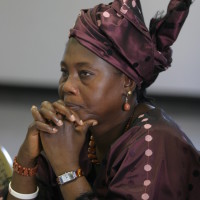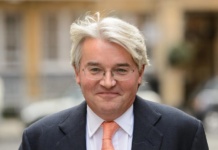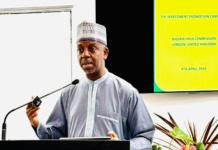Jammeh to outlaw brutal and unsafe female circumcision

Dr. Isatou Touray, co-founder and executive director of Gambia Committee on Traditional Practices (GAMCOTRAP), has remained committed to ‘knife-dropping’, or ending the brutal custom of FGM in her country, for more than three decades.
The Gambia has announced an immediate ban on Female Genital Mutilation (FGM) following widespread condemnation of the traditional practice. President Yahya Jammeh made the unexpected announcement this week during a visit to his home village of Kanilai as part of a nationwide tour.
Reacting to the development, anti-FGM campaigners said it was not clear when legislation would be drawn up to enable the ban to be enforced, but a law was needed to “save countless lives” in the West African nation where 76 percent of women have been cut.
Isatou Touray, Gambia’s highest-profile campaigner against FGM, whose more than 30 years of activism has seen her face countless death threats and a period in jail, said: “The whole country has been calling for change and for a law – we are moving towards zero tolerance of FGM.”
In alliance with other activists, in 1984 Dr Touray established GAMCOTRAP, the Gambia Committee on Traditional Practices, to protect the sexual and reproductive health rights of women and children in The Gambia against such practices as FGM, early and forced marriage, and violence against women.
According to anti-FGM activist Jaha Dukureh, “President Jammeh’s declaration sends a clear message to the world, but enacting a law urgently will send an even stronger signal. A law is going to save countless lives in the Gambia.”
One of the main challenges for activists in the Gambia has been tackling the misconception that FGM is a religious duty, but Dukureh said they had won the support of religious leaders, women’s representatives and community elders in recent years.
Seven out of nine ethnic groups in Gambia carry out FGM, an ancient ritual shrouded in secrecy and widely condemned elsewhere as a serious violation of women’s rights. The age at which FGM takes place in the Gambia is not recorded, but it is reported that the trend of cutting infant girls is increasing. By the age of 14, 56 percent of female children in the country have endured the procedure.
Support for the continuation of the practice is strong among the country’s richest women and varies dramatically in different ethnic communities, with 84% of Mandinka women supporting the continuation of FGM compared with 12% of Wolof women.
Any ban would also prove divisive along religious lines. Senior Muslim clerics argue that “female circumcision” is permitted in Islam, Gambia’s major religion. State house imam, Alhaji Abdoulie Fatty told Kibaaro News, “I have never heard of anyone who died as a result of female genital mutilation (FGM)… If you know what FGM means, you know that we do not practice that here. We do not mutilate our children.”
Anti-FGM activists contend that the imam is playing semantics. The practice involves the removal of the external genitalia, often causing numerous health problems which can be fatal. Some girls bleed to death or die from infections contracted from used blades and non-sterile conditions, while others die later in life from childbirth complications.
Dukureh, who will return to the Gambia on Tuesday to thank Jammeh for the ban and to help with drafting the legislation that will enforce it, added: “The amazing thing is it’s election season. This could cost the president the election. He put women and girls first, this could negatively affect him, but this shows he cares more about women than losing people’s votes.”
Despite being banned by the United Nations, FGM affects an estimated 140 million girls and women across Africa and parts of the Middle East and Asia, and is seen by many parents as a gateway to marriage. The practice was outlawed this year in Nigeria, which joined 18 other African countries that have banned the practice, including Central African Republic, Egypt and South Africa.
Ninety-eight percent of girls aged between four and 11 are subjected to the practice in Somalia, which has the highest prevalence of FGM in the world. Despite strong opposition from traditionalists, Somalia’s spokeswoman for women’s affairs has indicated she is “committed to make [an FGM ban] happen.”
The problem is by no means confined to Africa and Asia. A study for the NSPCC estimates that 23,000 girls under 15 could be at risk in England and Wales and nearly 60,000 women could be living with the consequences of FGM. In the two years to June 2013 over 1,700 victims of FGM were referred to six specialist clinics in England specialising in helping victims.
In 2014, British daily The Guardian launched a major campaign to end FGM around the world with the support of the campaign petition website, Change.org.
The End FGM Guardian Global Media campaign works closely with local activists in The Gambia, Kenya and Nigeria to help them provide education and awareness on the issue and hope to expand the campaign to Sierra Leone, Senegal and Uganda next year.








